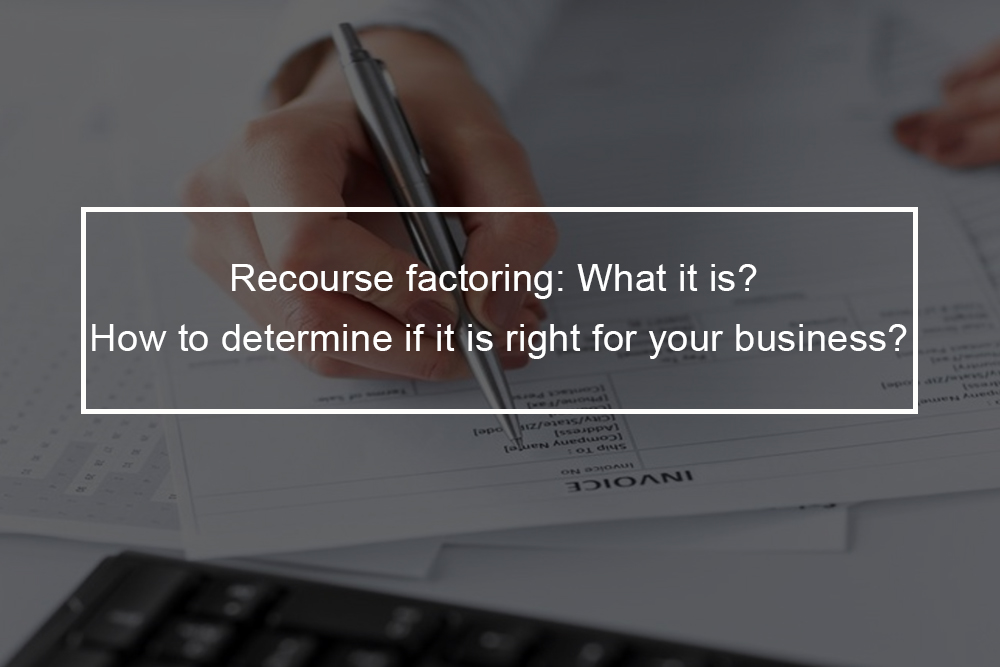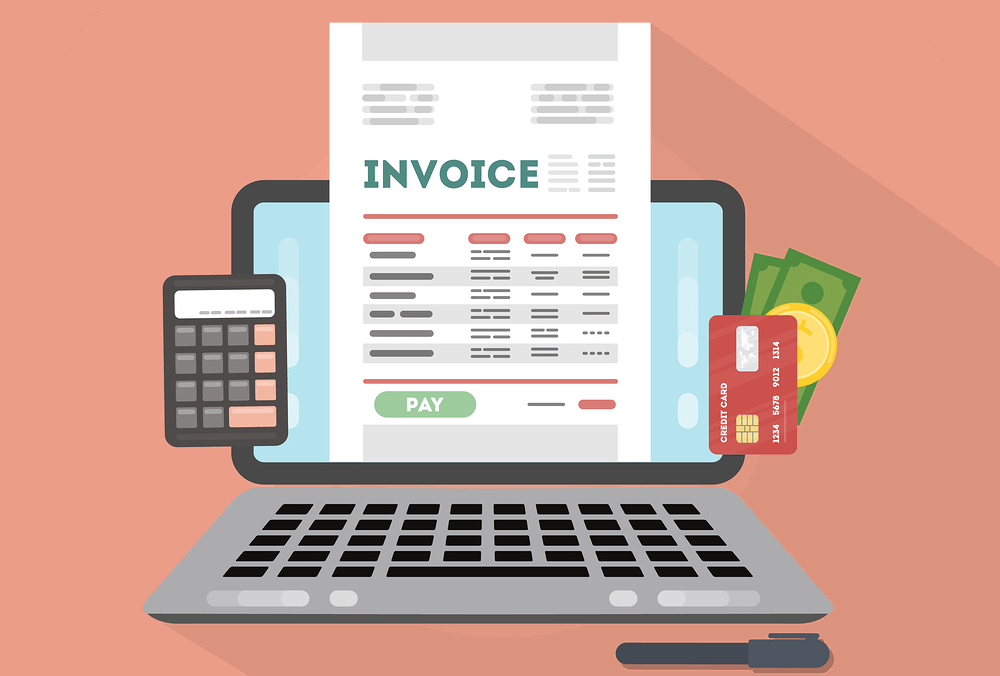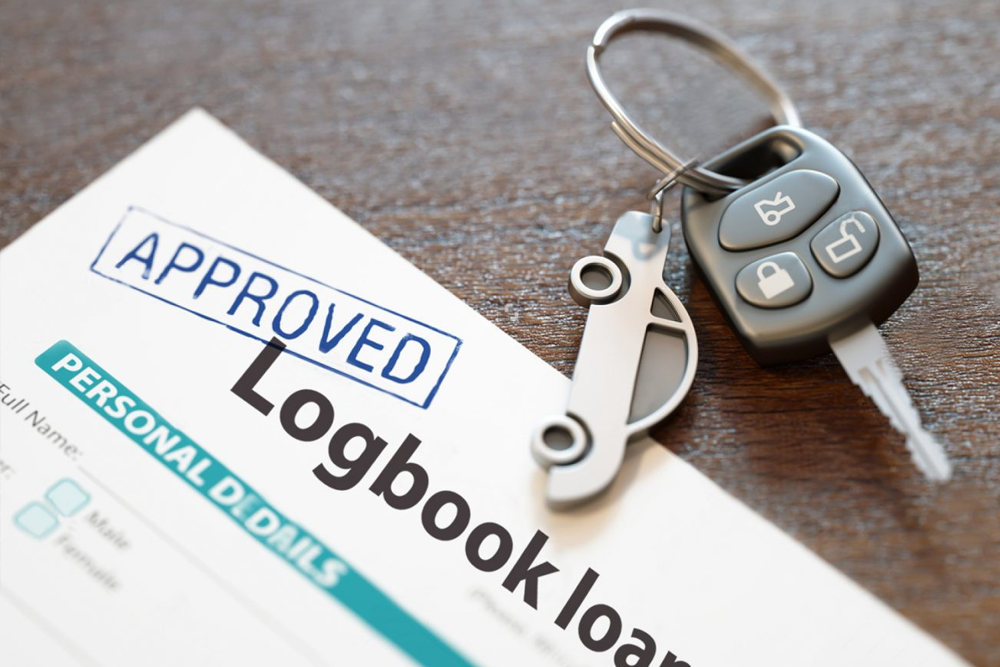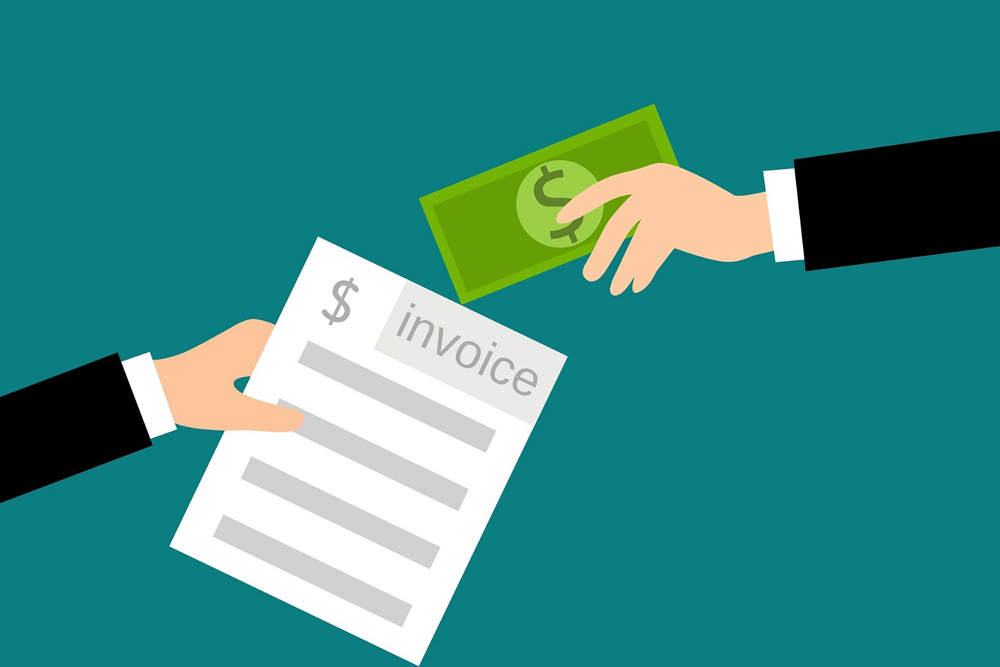When making decisions, a business should consider all the potential long-term and short-term effects on the business, not only to keep thriving in the market but also to grow, succeed, and accrue competitive advantages. It is common for businesses to continuously look for funding solutions to fulfill their orders, smoothly run their operations, and maintain and gain market shares in the business world.
Traditionally, a bank loan is the first solution to get additional working capital for a business. Nonetheless, most businesses are not eligible for a bank loan, mainly when they have not existed long enough on the market. Luckily, several alternative financing solutions are less traditional. They can help these businesses get the funds to support their cash flow. Factoring is one of the most common financing solutions businesses seek when they cannot get a bank loan. It is both simpler to qualify for and faster to finance their immediate needs.
What is factoring?
In simple words, factoring is a financial service in which the business entity trades its unpaid invoices and debts to a third party at a discount to raise funds. In due time, the factor, a.k.a factoring company, receives payment from the end clients and returns the balance to the business client. Such balance already deducts the already service fees and procured amount. Thus, factoring supports companies to retain continuously available steady cash flow and allows them to make excessive use of growth opportunities. There are many types of factoring services. One among them is recourse factoring.
What is recourse factoring?
Recourse makes up 88-percent of the AR financing market, following the International Factoring Association. Generally, recourse factoring is an agreement between you and your factoring company. In a recourse factoring, the company is accountable for recovering the cost of any invoices your liable clients fail to pay. Indicating, if your client does not pay the invoice by a particular date, the factoring company can reimburse that invoice with another good invoice or charge that invoice back to you. In some situations, this is the same as a business line of credit from a bank where a borrowing base is one of the loan qualifications. Suppose an invoice becomes unpaid, for instance, longer than ninety days. In that case, a bank will not let you borrow against it, or a factoring company will ask you to substitute either the advanced funds or provide another good unfunded invoice.
How does recourse factoring work?
With recourse factoring, there is what is called a recourse period. This could be ninety days from the end of the month in which the invoice was raised, for instance. This indicates that if you raise an invoice today, 27th September, the end of the month (30th September), plus ninety days would be 29th November. Thus, if the debtor had not paid their invoice, dated 27th September, by 29th November, you will repay the finance to the factor.
What is the definition of non-recourse factoring?
When it comes to non-recourse factoring, the factoring company accepts the non-payment credit risk of your clients. Companies that do not qualify for recourse factoring can look at non-recourse factoring. Therefore, the factoring company gives you a credit guarantee that they are accountable for collecting your invoices. It may be all your invoices or just those from specific clients. Generally, this guarantee is valid in case your client files for bankruptcy. Typically this is a critical point as it is essential to understand that it is not a guarantee that you are protected for services or goods that your client disputes for not meeting specifications. Nonetheless, this “insurance policy” against bankruptcy is vital for your survival. You never know which one of your clients will fail.
What is the difference between non-recourse factoring vs. recourse factoring?
Recourse and non-recourse factoring are different financing altogether. The key difference between the two factoring is that with recourse factoring, clients’ credit risk stays with the customer, i.e., in the event of non-payment of any bills receivable by the client, the responsibility to bear the risk remains with the client and not with the factoring company. So the threat of bad debts always stays in the company. Conversely, in non-recourse factoring, the credit risk of non-payment of bills receivable remains with the factoring company and not with the client. Therefore, the business can function smoothly without worrying about bad debts.
How to choose between non-recourse and recourse factoring?
When comparing recourse and non-recourse factoring types, the main difference is the party who is at a more significant risk for bad debt. After you understand this difference, you can make the appropriate choice for your company.
Recourse Factoring:
This solution is not as risk-free as non-recourse factoring. Nonetheless, it typically costs less. When your customer has delinquent invoices or fails to pay for more than 90 days, your company will have to rebuy the invoice from the factoring company to fund its cost.
What are the advantages of recourse invoice factoring?
Recourse factoring provides your company with immediate and flexible cash that will allow you to restructure, grow, and make excessive use of supplier discounts through early payments or volume purchases, or even to cover payroll. Many companies require additional cash flow to support growth, seasonal demands, and more. Recourse factoring is a widely accepted method of business financing utilized by many large well-known companies. It is cheaper than traditional factoring; however, like traditional factoring, it is less restrictive than equity financing, enables you to access cash without giving up your company share, and gives you weekly and daily access to your eligible availability when you request it. Recourse factoring can also increase and decrease depending on your current business needs and size and enables you to gain administrative support to manage your receivables without additional staff.
Non-Recourse Factoring
When it comes to non-recourse, this is when a factoring company engages to take on full obligation when purchasing your invoices. This indicates that it takes the risk of bad debt. The factor is in charge. Factoring companies will have to take action if your customers fail to pay or default in agreed due times. This is useful for your business if you lack the resources, time, and resources to take on collections’ obligation. After your invoices are sold to the factoring company through non-recourse factoring, you are not liable to fund any cost of your clients’ non-payment problems. You will not have to worry about purchasing back any invoice from the factoring company if it is justify uncovered. In other words, the upfront payment advance you receive on your invoices is 100-percent credit risk-free.
What are the advantages of non-recourse factoring?
- No Credit Risk
- No extra debts
- Available working capital
- Same Day Funding
Besides offering working capital and credit information, protection from a large bad debt is one of the essential services an invoice factoring company can offer. When deciding on a factoring company, ensure they offer bankruptcy protection. Many under-capitalized or smaller factors cannot obtain credit insurance. That alone should make you think twice when selecting a factor.
Understanding the terms or recourse and non-recourse factoring
Whether your business plans to pursue non-recourse or recourse factoring, it is essential to sit down with a reputable factor to discuss their terms. It might be to your advantage to get a factoring company that offers both non-recourse and recourse factoring. Generally, a factoring company with a strong credit team can also help you avoid working with clients with poor payment histories.
Regardless of the kind of account, a good factoring company will always make a diligent effort to collect on your invoices. Collection calls from the factoring company to a debtor should begin 40 days after the invoice was sent and should continue for several weeks. After ninety days, the factoring company might “recourse” the invoice back to you. The factoring company should, nonetheless, offer options for helping you cover the cost. The factoring company might deduct cash from your reverse account or withhold a portion of future cash advances. Working out an unpaid invoice should not make your business have a financial hardship, as it is not in the best interest for you or your factoring company.
The best option is for your business to have customers with solid payment histories and good credit. This allows you to pay lower fees for recourse factoring without worrying about the risk. In conclusion, non-recourse factoring might provide you more protection. Nonetheless, since the definition is changeable, it is vital to understand what is and is not funded under a “non-recourse” agreement before settling on a factoring company. Besides, non-recourse factoring is rarely worth the initial fees. So whereas non-recourse factoring sounds snazzy right off the bat, you might find it inexpensive to go the normal recourse route. Ultimately, it is maybe most important to find a factoring company that adequately communicates with you in the event of non-payment, so you can solve issues before they become urgent.













